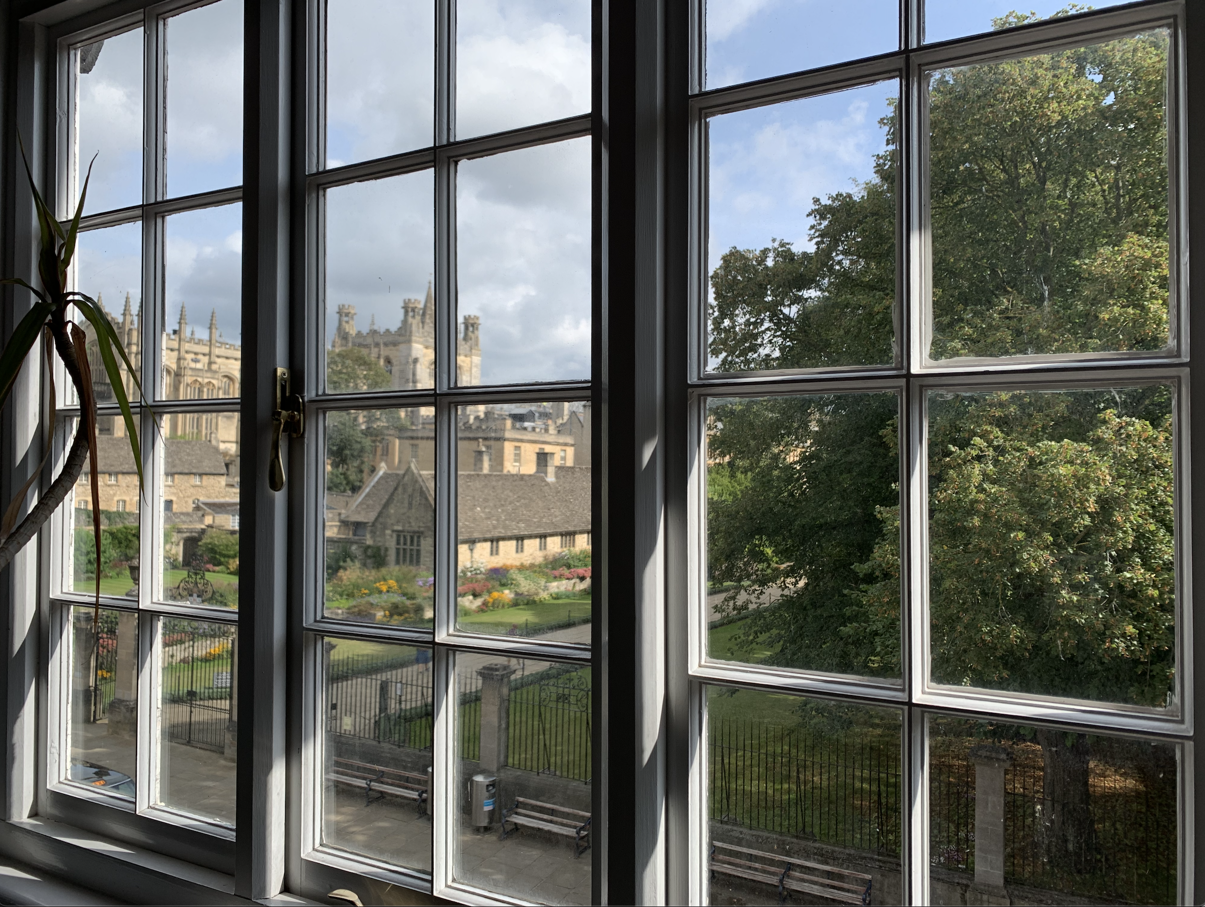Our History
The Anscombe Bioethics Centre was founded in 1977, and was the oldest national bioethics research centre in the UK, and one of the oldest in the world. Sadly, the Centre closed on 31 July 2025, and the below relates to its history before that time.
The proposal for a Catholic institute for the study of medical ethics for England and Wales was first raised by the Hospital Review Committee set up by Cardinal Heenan, Archbishop of Westminster in June 1970. This led in October 1974 to the establishment of a governing board of the ‘Linacre Centre for the Study of the Ethics of Health Care’. The board planned the structure, scope and mission of the centre, located suitable accommodation at the Hospital of St John and St Elizabeth in London, drew up the trust deed, raised funds, and recruited staff.
The trust deed was signed in April 1977 by the Archbishops of Westminster, Birmingham, Liverpool, and Cardiff, and the Centre has been providing bioethical advice and education since then. The same issues that face scientists, healthcare works and patients in England and Wales also arise in Scotland and Ireland and from the beginning the Centre has worked across the British Isles. It exists not only for the Catholic community but for the common good. The Centre engages in scholarly dialogue with academics and practitioners of different backgrounds, contributes to public debates and consultations, and runs educational programmes for Catholics, for healthcare professionals, and for the general public.

For many years the Centre was based in London and was known as the Linacre Centre for Healthcare Ethics, in honour of Thomas Linacre, the 16th Century scholar and physician to King Henry VII. In 2010, the Centre moved to Oxford, in order to be in close contact with the most advanced research in the world and to develop more strategic academic partnerships. The Centre’s change of name coincided with this move, and honours Elizabeth Anscombe, the great Catholic philosopher who taught in Oxford and Cambridge, debated with C.S. Lewis, studied with Wittgenstein, and who was well-known for her defence of human life. She died in 2001.
The current Director (January-July 2001; 2010-) is Dr David Albert Jones, who is also Professor of Bioethics at St Mary’s University in Twickenham, and Research Fellow at Blackfriars Oxford.
The Centre’s previous directors were:
• Helen Watt (2001-2010)
• Luke Gormally (1981-2000)
• David Williams (1977-1980)
Present and former academic staff include Teresa Iglesias (Research Fellow 1981-1985), Fred Fitzpatrick (Education and Research Officer 1984-1990), Agneta Sutton (Research Fellow 1986-1989 and Deputy Director 1989-1994), Hugh Henry (Education Officer 2003-2004), Patrick Carr (Education Officer 2005-2006), Anthony McCarthy (Research Fellow 2002-2010), Stephen Barrie (Education and Research Officer 2007-2016), Michael Wee (Education and Research Officer 2016-2021), and Chris Wojtulewicz (Education and Research Officer 2021-).
Sincerest Thanks for Your Support
Staff are grateful to all those who sustained the Centre in the past by their prayers and the generous financial support from trusts, organisations, communities and especially from individual donors, including the core funding that came through the Day for Life fund and so from the generosity of many thousands of parishioners. We would finally like to acknowledge the support the Centre has received from the Catholic community in Ireland, especially during the pandemic when second collections were not possible.
We would like to emphasise that, though the Centre is now closed, these donations have not been wasted but have helped educate and support generations of conscientious healthcare professionals, clerics, and lay people over almost 50 years. This support has also helped prevent repeated attempts to legalise euthanasia or assisted suicide in Britain and Ireland from 1993 till the end of the Centre’s work on 31 July 2025.
